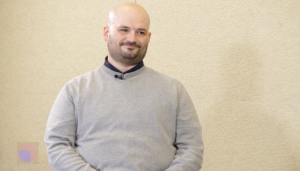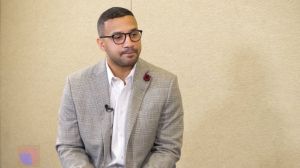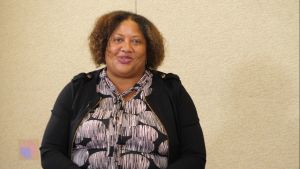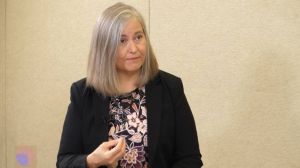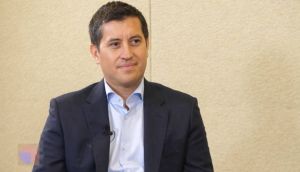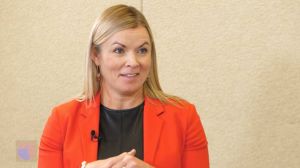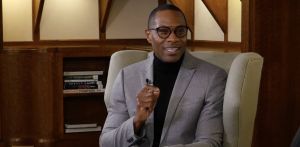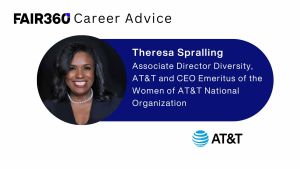Four veterans working at BASF offer advice on work-life balance, relocating, women veterans, translating military skills onto civilian rsums and more.
 Allen June, Ph.D., SPHR
Allen June, Ph.D., SPHR
Human Resource Site Leader
BASF Freeport, TX
Dr. Allen June is the site Human Resource Leader for BASF’s Freeport Texas operations. He began his work in human resources in 1995 and continues in this field today.
Earning his Ph.D. in Industrial/Organization Psychology from Northcentral University in 2009, Dr. June has applied his research from his dissertation entitled “Examining Self-Disclosure of Workers through the Exit Interview Process” toward improving the exit processes from organizations he supports. Today, however, his work focuses more on attraction and retention rather than on exiting an organization.
A former Air Force pilot and veteran, Dr. June’s career began in 1976 following his graduation from Baylor University’s ROTC program and his selection to attend the U.S. Air Force Undergraduate Pilot Training program. Having served as a senior pilot in multiple weapon systems, Dr. June’s military background helps foster strong dialogue between himself and veteran candidates in the job market today.
What advice would you share with veterans in the workforce on how to get promoted What can veterans do to demonstrate their leadership and show that they have transferrable skills that bring strong value to the workplace
Focus on learning everything you can about your current job and become an expert in that job.
Don’t get sidetracked trying to learn “your boss’ job” (unless he/she asks you to). I often see employees lose sight of the role they are in as they reach for their next promotion.
Don’t abandon your military bearing because you no longer wear the uniform. The same attributes that made you a great soldier will also make you a great employee.
We were trained to “step up” when battlefield situations demand it. Be prepared to step up in your civilian role, and volunteer to lead when your supervisor asks for volunteers
Exhibit leadership by being actively involved with your team. Don’t be the lone ranger. Engage and help your team members stay engaged. We depended upon our teams, squads, crews and support personnel to successfully complete each mission. Do the same in your new role.
What advice do you have for veteran employees who are asked to relocate
Consider each move carefully. Think of these opportunities as another TDY (Temporary Duty Assignment) or PCS (Permanent change of station).
Each move presents us with a new opportunity to be successful.
But don’t neglect your most important support organization your family. Don’t accept a move or a new role that will enhance your career at the expense of your family. Keep your priorities straight. Your family will be with you a lot longer than any one job will be. Don’t allow your family to become a casualty of your new civilian career.
 Kirsten Meskill
Kirsten Meskill
Director, Corporate Security
BASF Corporation
In her role at BASF, Kirsten Meskill serves as the internal and external focal point for expertise in matters related to physical security standards and relevant regulatory compliance requirements, personnel and travel security, information protection, distribution network security, criminal syndicate activity and related investigations. Prior to BASF, Kirsten was the chief security officer (CSO) at Kraft Foods and later Mondelez International. In these roles, she developed and implemented strategic risk management initiatives designed to protect company employees, products, brands and operations.
Kirsten graduated from Fordham University and was commissioned in the U.S. Army serving fourteen years combined active and reserve duty.
What advice do you have for high potential women veterans in the workforce How do they demonstrate their leadership skills in the industry or corporate environment
I think the hardest part for any military veteran entering or working in the corporate environment is translating his or her military experience into jargon that is relevant and understandable to civilian peers. This is a well-known challenge and now there are many resources available to veterans seeking to make that transition. Seek out other veteran peers to see how they might have translated their rsums to your company’s lingo.
Remember, the onus is on the veteran to help their corporate supervisors, peers or future employers understand their military experience. It requires creativity, patience and strong communication skills to bridge this gap.
Military careers, particularly those in recent years, have helped veterans develop valuable competencies more so perhaps than their corporate peers. For example, lengthy and numerous deployments have honed adaptability and flexibility competencies and the ability to deal with ambiguity. Working and living side-by-side with Americans from all over the U.S. and its territories, but also military from other countries in joint operations, give our veterans a unique ability to work in diverse environments unlike any other. These competencies build on top of the “core” leadership abilities military veterans are known for decision ability and quality, confidence, organization and responsibility, and mission accomplishment to name a few.
Military veterans should also not lose sight of their people-focus and commitment to safety.
What advice would you give to someone who is new to a company on how to adapt to the company culture
In a corporate environment, not everyone is working toward the same mission or objective.
Make a deliberate effort to build business knowledge and savvy. Attend any and all training designed to help employees understand the business. Talk to business leaders. Focus on understanding 1) business objectives and why, 2) how the business evaluates its success and 3) the supply chain.
Make time to build a network. Just like in the military, there are formal and informal channels for getting things done. Figuring out who key stakeholders are that will help you accomplish your job and getting to know them and helping them understand what you are trying to get done will set the foundation of your informal network.
Just as in the military, get out of the office. Visit sites and operations travel. Ask questions and listen.
 Jim Blair
Jim Blair
Process Architecture Transport and Non Conformance Management Process Strategy
BASF Corporation
Jim Blair is a chemical engineer from Vanderbilt and has an MBA from Northwestern’s Kellogg School. He served in the U.S. Marine Corps as a supply officer for six years, four years active and two years in the Reserves. He’s been with BASF for over 28 years in various supply chain roles in the U.S., Canada and Germany.
What advice would you give to a veteran employee who is new to a company on how to adapt to the culture quickly What special challenges might this present to a veteran who is new to a civilian role
My advice for incoming veterans would be broken down into two parts first, realize the strengths you bring and what value you’ll add directly from your military experience such as:
The adaptability, flexibility, and ability to innovate under high pressure situations requiring a focus on solving problems
A can do attitude focusing on teamwork and service
Leadership and decision making
And second, you also have to realize that you’ll be going into a very different world focused on making profit. You’ll probably be surprised at some of the lack of discipline (when compared to the military world), and the “language” will be very different. So don’t use the military lingo you’re used to. Realize that some of your new colleagues might be a little nervous concerning some of the myths surrounding PTSD and military population and not realize the rates are similar in the civilian population.
Finally get yourself a mentor or a buddy and join the Veterans Employee Resource Group if the company has one. Most companies offer this formally or informally take advantage of it. And then focus on driving results!
 Kelley Smith
Kelley Smith
Learning and Development Coordinator
BASF Freeport, TX
Kelley Smith has been at BASF for over 20 years. He is the leader of Freeport’s Veterans’ Employee Team (VET) and was in the Army Reserves during Desert Shield and Desert Storm.
Why should veterans join an employee resource group What advantages do they gain
My father once told me that “everybody needs help sometimes.” That’s what BASF strives to do. An Employee Resource Group (ERG) is a group of like-minded individuals working toward common goals.
In the case of the Veterans’ Employee Team (VET), it is to attract, develop and retain veterans for employment at BASF.
We attract by participating in community events (job fairs, Veteran’s Day parade, college forums).
We develop by being both friends and mentors for BASF employees and at the Brazoria County Veterans Court.
We retain by being active in programs that affect BASF employees (Brazoria County Veterans Court, fund raisers, starting other VET chapters, advice on Facebook).
My father was right, and on a personal level the VET has helped me too. I’m now able to delegate more, and from what I hear, my public speaking has improved tremendously. It’s a good feeling when someone that asked you for advice at a job fair becomes a BASF employee. This goes to show that not only can new hires benefit from an ERG, but seasoned employees as well.


